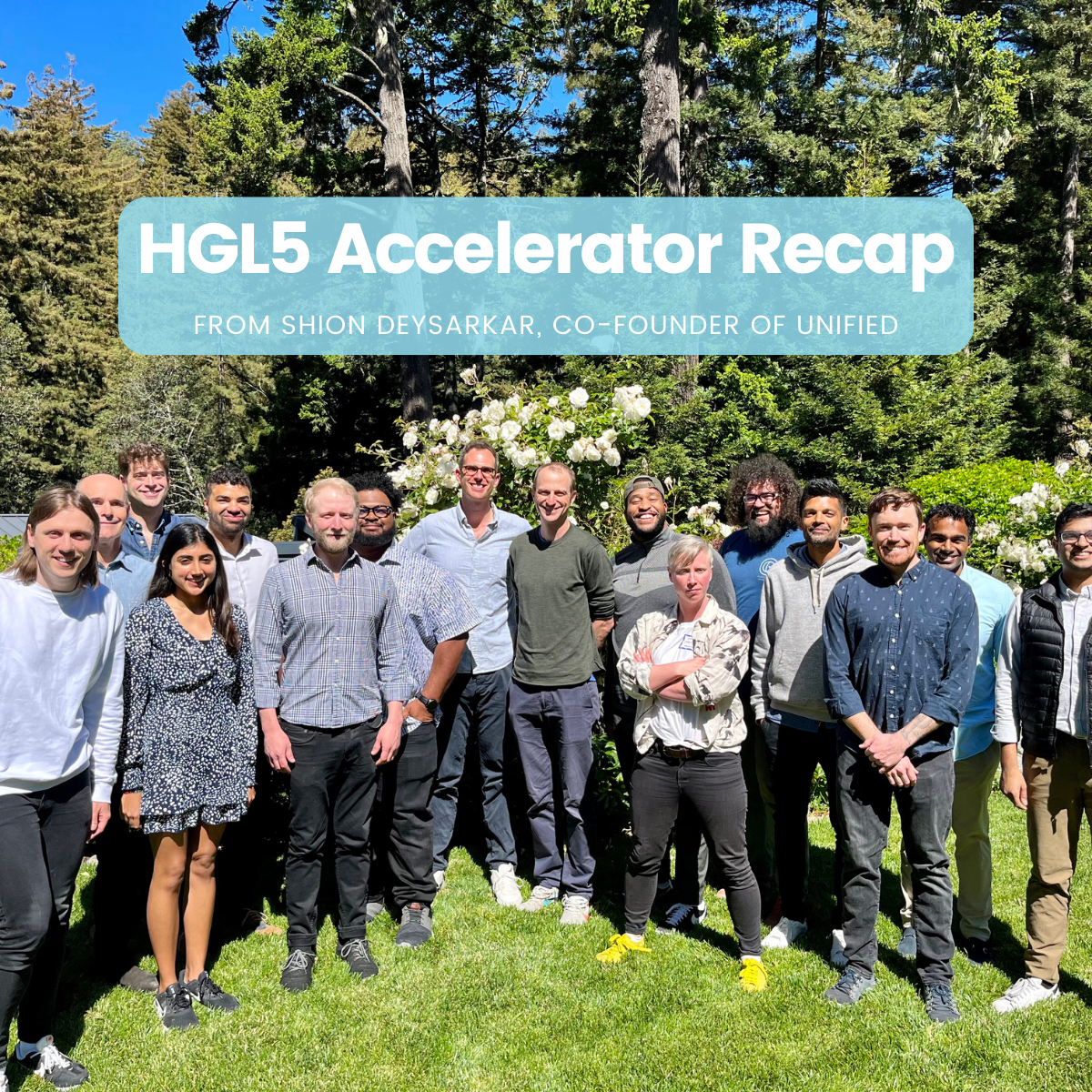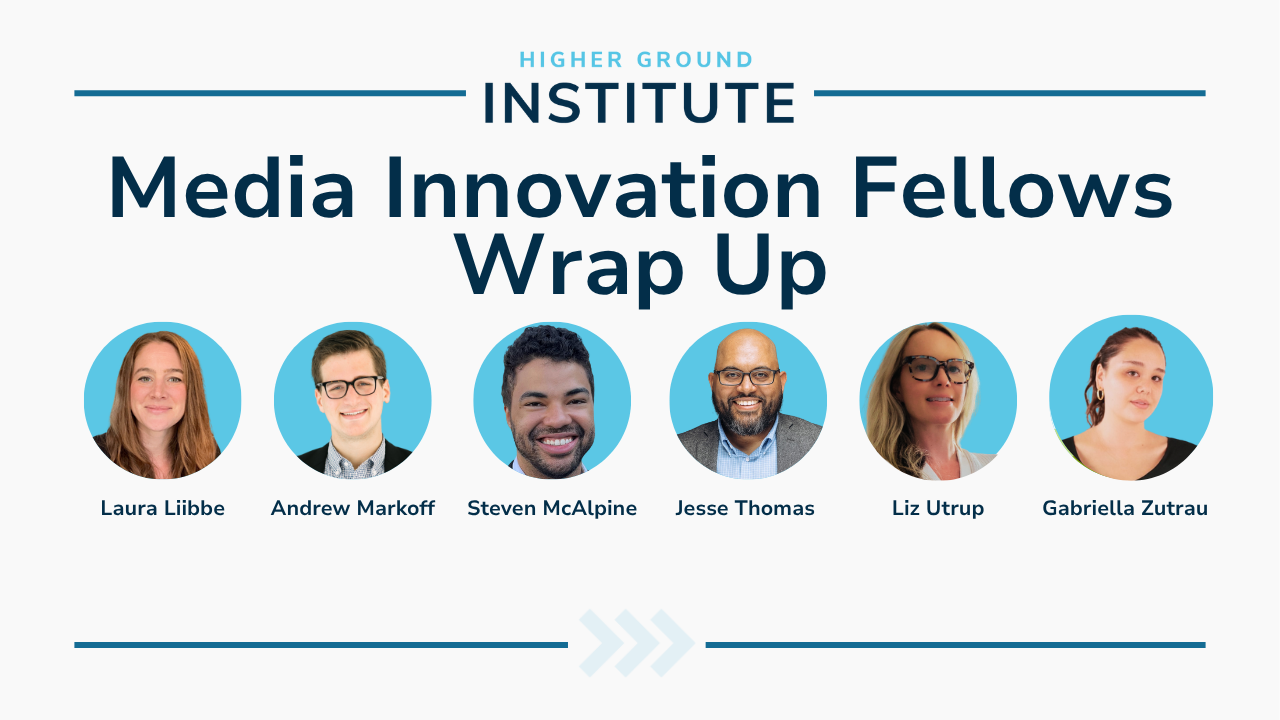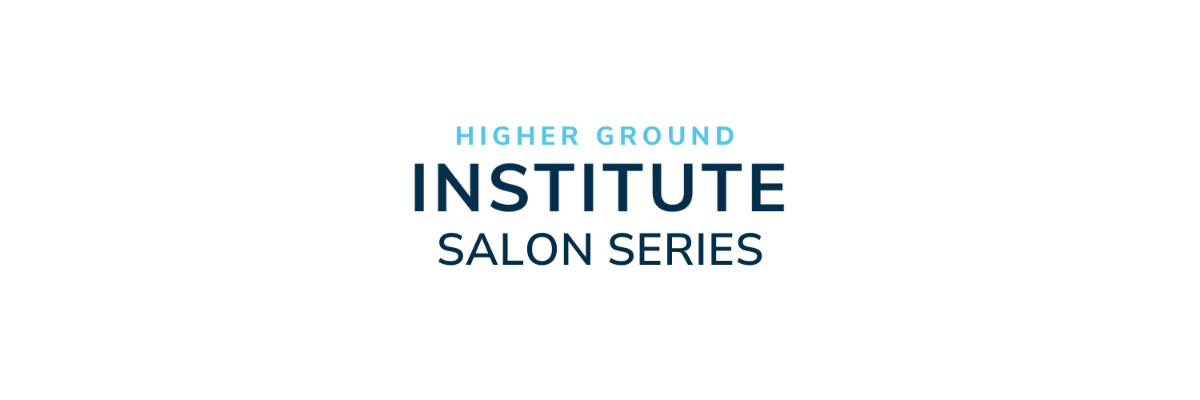This piece was written by HGL5 cohort member Shion Deysarkar, Co-founder & CEO of Unified.
“This work is the physical manifestation of hope.”
Ilyse Hogue, former president of NARAL, said these words to me and the other founders of Higher Ground Lab’s most recent cohort during the accelerator program’s DC Pitch Week. The work she was referring to was our own — the effort all of us had been pouring into our companies. I have to admit — her words hit me hard. Ilyse was speaking to us just weeks after the leaked Roe v Wade decision, knowing that the Supreme Court was days away from upending her life’s work. Here was a person that had more than enough reason and justification to just give up. Instead, she was communicating a message of hope, and attributing some part of her hope to our own work.
Like I said, the words hit hard.
They were also just one of the many enduring moments and lessons I took away from my time in the HGL accelerator. The program was full of amazing sessions and activities that made me a more effective leader, a more informed technology provider, and even a better person.
When HGL asked me to write a recap of my experience, I decided to write something that would help future cohorts understand what they’re getting to and what it might mean to them. So here we go 🙂
The Application Process
It only makes sense to start at the beginning.
In October 2021, Unified was only just getting off the ground. We had some early interest in our “social network for activism”, but there wasn’t even a usable app. There was “early” and then there was us. That said, we wanted to engage national organizations by the end of the year, and going through HGL would be a big help. Waiting for the next open call wasn’t going to work, so I put together our application and sent it on its way.
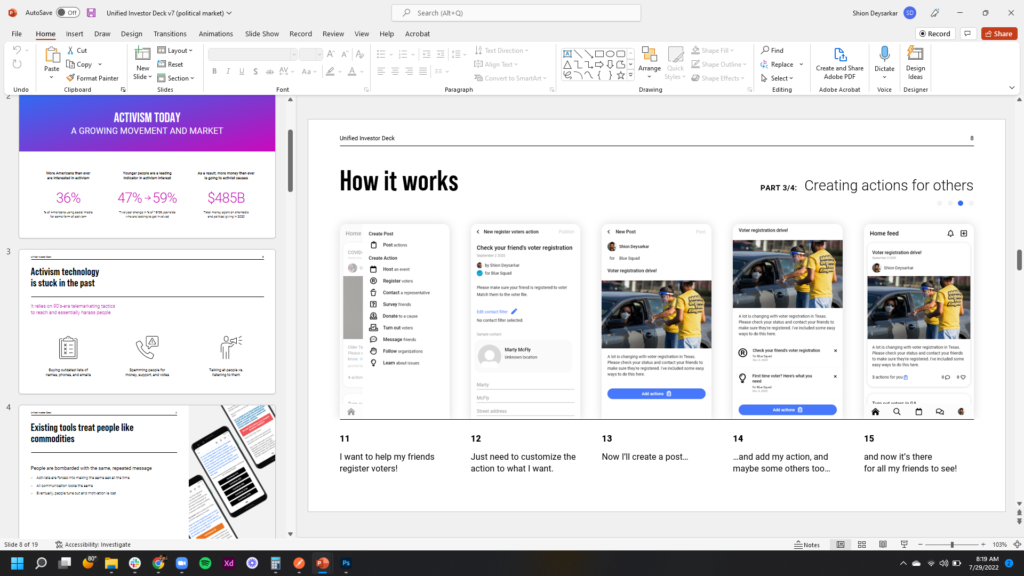
Our original deck. More like an encyclopedia than a deck?
It’s a little stressful to summarize your company in just a few questions on a form, but I felt good. The responses had come naturally, so I took that as a sign that we had a compelling story. My optimism was rewarded, because in a few weeks, I got a call back from HGL and shortly thereafter was on a Zoom with Hillary Lehr and Vin Morada.
Everyone had already told me that Hillary was a warm and gregarious person, but I was still nervous, and for good reason! Hillary’s past experiences included a stint at Brigade — a company that had tried and failed at building a political social network. She had first-hand knowledge of all the ways Unified wouldn’t work. And unsurprisingly, she asked all of those questions during the call. I stuck to my guns — I felt there were some pretty clear differences in our product and strategy. I think it’s always important for a founder to know when to use critiques as a way to adjust and when to stick to their story. You never have all the answers, but you should also believe the market is in need of an answer.
Needless to say, the call went well. A few weeks later, Vin shared the good news that we had been accepted into HGL5, and I shared the news with the rest of the team. As I said, we were very early, so this was a great early validation point for us. The door had been opened.

Breaking the HGL news with the team
The Program Start! Online Sessions & Introduction to the Political Market
The first block of the accelerator entailed a couple of online afternoon sessions, which made sense given that the HGL5 cohort was not only scattered across the US, but also the world.
It was pretty clear from the start that everyone in HGL5 was working on something special. Just a quick sample:
- Devshi Mehrotra (JusticeText) is helping public defenders even the playing field in our courts
- Sedale Turbovsky and Cody Hanson (OpenGrants) are building a better platform for grants
- Argo Scott, James Rees, and Josh Carrington (Movement) are building better tools for labor unions
Of course, everyone else is also working on very compelling stuff, and you should check out all of them here.
During these sessions, we also heard from several leaders in the progressive technology space. There were people building tech at progressive institutions (Nell Thomas of DNC), several HGL alumni (Allen Kramer of Mobilize and Alex Niemczewski of BallotReady), and even technology buyers (Asher Novek of TMC and Malik Hubbard of Ohio Dems). All of these folks shared their unique perspectives on how the political tech market works and what it takes to succeed in it. It was great to get some very direct and specific insight from them — something I think was only possible in a trusted, HGL-hosted setting.
Woodside Founder Retreat: Into the Woods We Go
For the next portion of the program, HGL5 traveled to Woodside, CA for a 3-day intensive. Before I get into the content, let me just fawn over the accommodations for a beat:
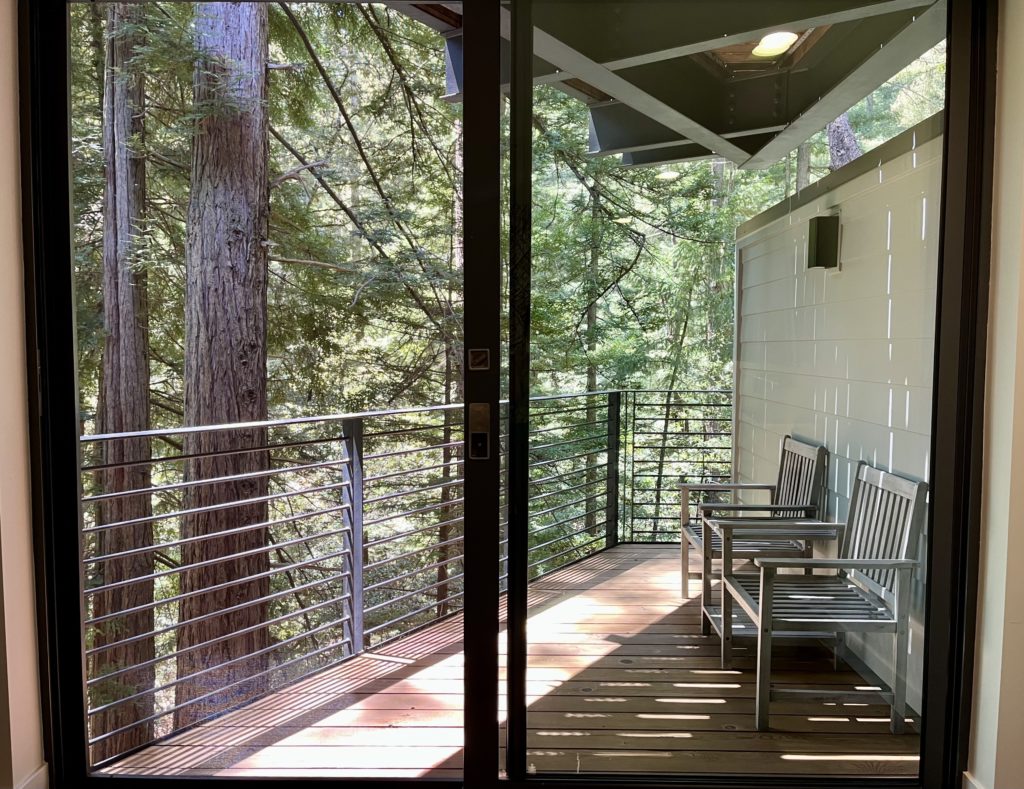
Yeah… that’s a treehouse.
The entire venue was amazing — the surroundings, the food, the staff. Just a great setup all around.
Ok, back to the content. The next two days were packed full of highly-informative sessions on just about everything you would want as a founder entering the political industry. I could write an entire book on everything we covered, but you’ll have to be ok with just the highlights:
- A workshop led by Hillary on creating a “Story of Self”, which helped us weave our own personal experiences into the narratives of our companies.
- An omnibus on the unique work-life challenges founders face and how to manage them by Dr. Lian Bloch. I’ve since incorporated this material into my leadership style.
- An incredibly detailed breakdown of the entire SaaS pricing stack from Andrew McLaughlin. I don’t think he left a single SaaS stone untouched.
- A deeply candid discussion from Alex Kouts on what it takes to build an MVP. Alex was also with Brigade — and I still need to reach out to him so he can tear apart Unified!

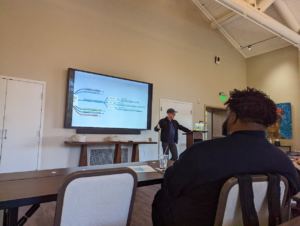
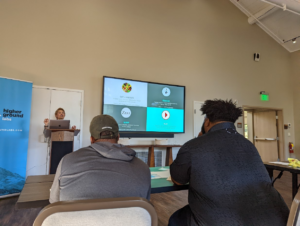
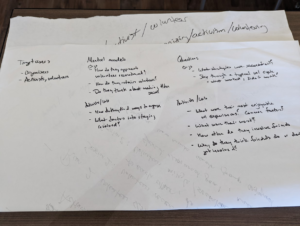
Interspersed between these seminars, we spent a lot of time presenting and refining our pitches, which included practicing demos, rehearsing with each other, and getting 1-on-1 coaching from HGL staff. This work had the most practical value for me personally, because it gave me very direct feedback on the Unified pitch. I learned that while I was really good at telling the Unified story during a back-and-forth, one-on-one conversation, I had a lot of work to do when putting together a tight, highly-structured story.
Woodside wasn’t all intense workshops and seminars though. In fact, a lot of it was simply bonding with the other founders. Whether it be over an amazing breakfast to start the day, or through a late-night bonfire session to end the night, I got to know my fellow HGL5 cohort on a deeper, more personal level. We talked about challenges and successes, wins and losses, and everything else in between. I learned about INTRVL’s Steven and John’s time in the Hawkfish boiler room, how JusticeText’s Devshi built a successful company as a digital nomad, and even Wayside Press’ Eliot’s experiments with amaro (still waiting on the recipe)! Being a founder can be a lonely journey (even with a cofounder), so it was really special to just be around others that had chosen the same path.
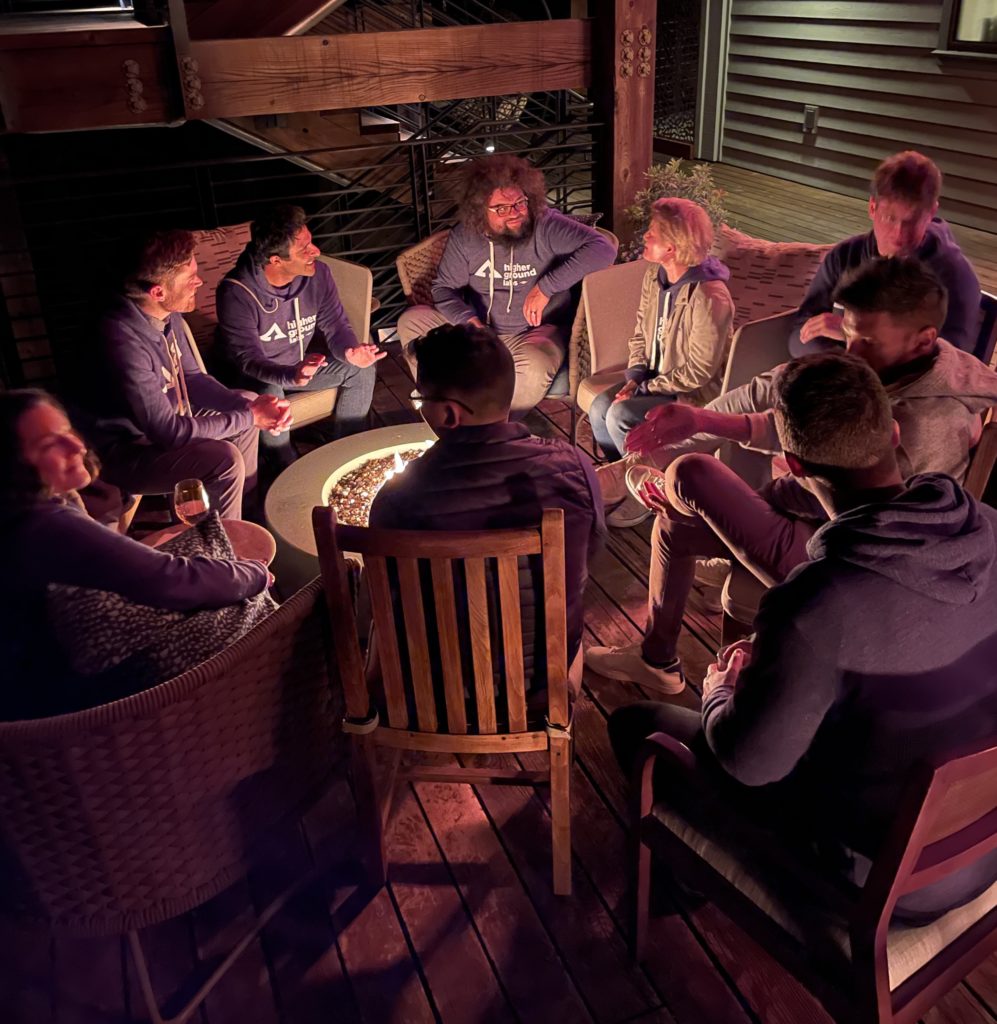 Our time in California wrapped up with a visit to San Francisco, where we wrapped everything up with a final session from other HGL founders and impact investors, followed by a final happy hour with the HGL Bay Area family. Thanks again to Danielle Winterhalter from SpeakEasy Political for hosting us!
Our time in California wrapped up with a visit to San Francisco, where we wrapped everything up with a final session from other HGL founders and impact investors, followed by a final happy hour with the HGL Bay Area family. Thanks again to Danielle Winterhalter from SpeakEasy Political for hosting us!
I left California more motivated than ever to realize the vision of Unified and find the best way to tell our story.
Learning from Woodside and Preparing for DC
The next session was going to be in DC, where we’d be presenting directly to potential buyers and partners. This was a big deal for me. While Unified’s go-to-market strategy is centered on appealing to grassroots organizers, we knew that getting the support of campaign committees and other nationwide organizations would help accelerate adoption. In fact, this was the biggest reason we were in the HGL program.
With that in mind, I was laser-focused on refining our pitch deck for this audience. The feedback I received in Woodside made it pretty clear that the pitch needed some big changes. I spent countless hours reworking the content, getting feedback from my own team and others, and rehearsing it over and over again. With just a few days before the trip, I felt I had something, but I would only know for sure once I got to DC.
DC Week
While Woodside was all about looking inward (at yourself and your company), DC was all about communicating outward. Our three days were a back-to-back of pitching to, communicating with, and learning from likely buyers and partners. These were the big seminar highlights for me:
- A lightning talk from Eliot Nelson (HGL5 cohort, Wayside Press founder, former HuffPo journalist) on pitching the press. Be their friends!
- Presenting tips from Jamie McGonigal (leads sales at Impactive and former stage/voice actor). Jamie is a master of body language.
- An incredibly detailed breakdown of Mobilize’s go-to-market sales strategy from Chelsea Kammerer. This was particularly relevant for us, as we hope to emulate some of the same tactics.
- A round table discussion from TMC and union buyers on what they look for when choosing new technology. Note to self: labor is a hard market to crack.
- And of course, the moving speech from Ilyse Hogue on the “physical manifestation of hope”. I’ve used her words several times with the team and even friends.
All of this culminated with a huge showcase event. HGL had invited over 100 progressive leaders, organizers, and technologists to check out our cohort and what we had to offer. It was the moment I had been waiting for since the program started. And after all the help I had received, I felt ready. The pitch had transformed into this…
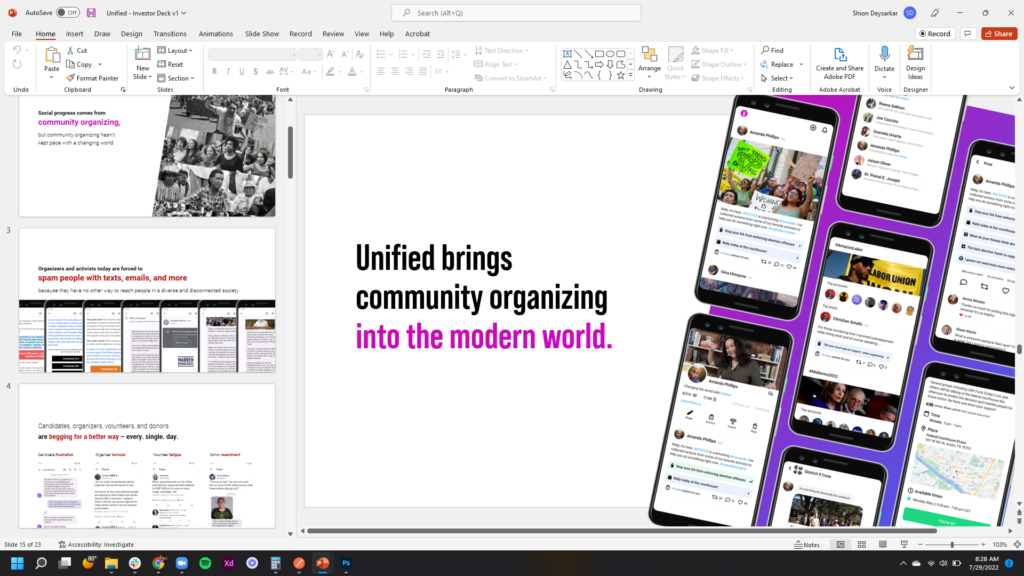
…and I was ready to tell our story. (Here’s a link to a virtual version of Unified’s pitch)
I was a bundle of emotions afterward. I felt excitement, relief, annoyance at a few minor flubs, but ultimately thrill. It was honestly fun to pitch to a crowd. It felt good to share something I really believed in with people I really wanted to work with.
It wasn’t immediately apparent in the moment, but a lot of important relationships ended up coming out of the showcase. We’re now engaged with at least three organizations that are interested in piloting Unified this fall. A few other newly-formed allies are also helping us spread the word. I won’t say “mission accomplished” because the mission is much bigger than what a single showcase can provide, but I can look back on the event and know that the decision to go for HGL was justified.
And hey, we weren’t even done with DC. The very next day, we got to meet a bunch of folks at campaign committees (DCCC, DAGA, etc.) at the DNC headquarters, where we also heard from Roger Lau (Deputy Director @ DNC and former CM @ Warren for President) and bumped into Nancy Pelosi. I’m not sure about the rest of HGL5, but since I was a Warren volunteer, I was much more excited about listening to Roger!
Oh, and one last thing on DC: Betsy Hoover surprised all of us by arranging a last-minute tour of the White House! On our very last day, we got a tour through the East Wing, capping off a very long and very fulfilling week in the capitol.
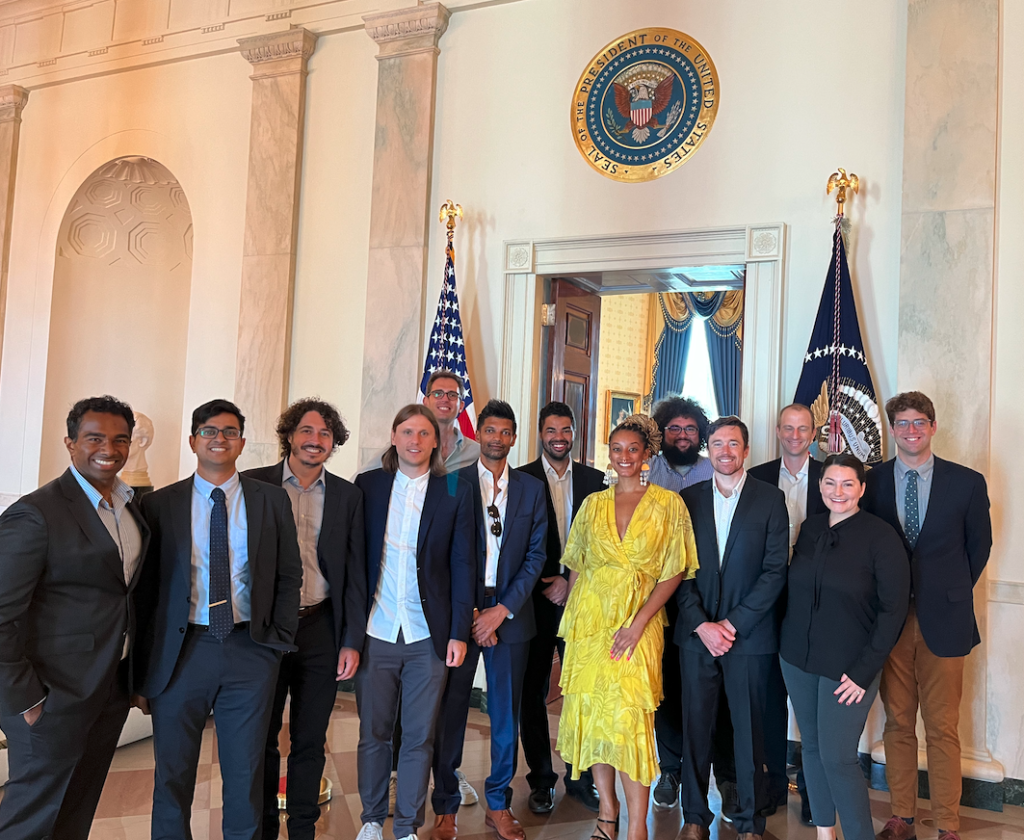
Program Wrap-Up
After DC, there were a handful of sessions remaining in the program, including another pitch event via Zoom to folks outside of DC and final check-ins with the HGL staff. All of these helped me (and I’m sure everyone else in HGL5) to continue to refine their story and get feedback on their offering. I’ve since made even more revisions to our pitch deck, which now has different versions for each audience. The work never really stops.
Final Thoughts
Several weeks after the accelerator was finished, I met up with a friend who’s working at another HGL company. She was coming up against challenges all of us face when entering the political tech market — resistance to new products, navigating the web of relationships, gaining trust — and wanted my perspective.
I told her this — everything about this work is hard. The problems we’re trying to solve are the same ones humans have been trying to solve since the dawn of history. How do we persuade someone to do something? How do we help each other? How do we become better people? If it wasn’t hard, it wouldn’t be interesting, and we only care about these problems because they are hard. You have to live with the struggle, because you know deep down you wouldn’t know how to live without it.
But it’s still good to have some help along the way.
I look back at my time in HGL and realize how far I’ve come and what’s now possible because of the experience. I’m so much more effective at telling our story. I know who to ask when I need an introduction. I know what I need to do to build trust with a potential partner.
HGL is one of our investors — as in, they are on our cap table — but it is every other way they invested in us that pays dividends every single day.
